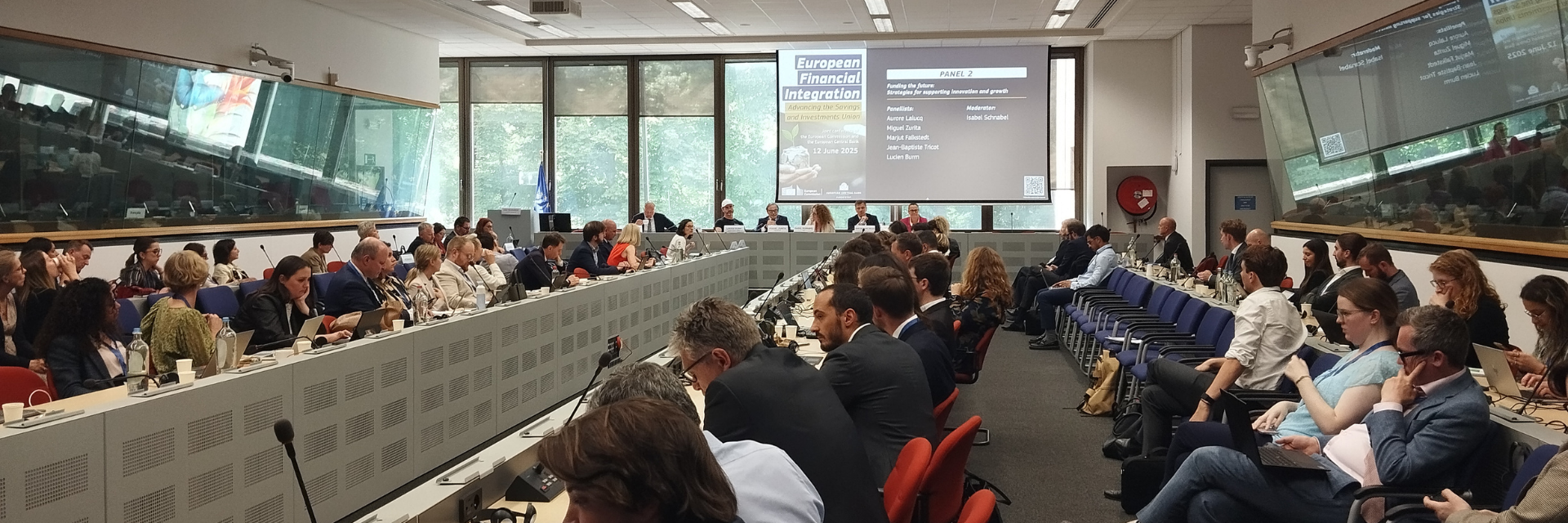Blog by José Ernault, Political Consultant for Financial Services & Business
The annual financial conference co-organised by the European Central Bank (ECB) and the European Commission took place on June 12 in Brussels. This year’s edition focused on advancing the Savings and Investments Union (SIU)—a strategy launched in March of this year to help channel European savings into capital markets and address the persistent investment gaps identified in the Draghi Report. More broadly, it aims to revive the Capital Markets Union project.
The conference featured two panels: one on unlocking retail participation, and the other on supporting innovation and growth. It also included keynote speeches from Commissioner Albuquerque, Polish Minister Jurand Drop, and ECB Vice-President Luis de Guindos.
A strong sense of urgency ran through the discussions—urgency to act so Europe can close the gap with the U.S. and China, and offer its citizens easier, more attractive ways to invest in capital markets. Financial literacy was identified as a key lever to help individuals make informed investment decisions.
A speaker from Sweden, where retail market participation is high, called for a cultural shift in the EU—from a savings-first mindset to an investment-oriented one. A consumer representative echoed this, highlighting high fees, poor transparency, and product complexity as major barriers to trust. He called for better value-for-money products to encourage citizen participation.
From the industry side, there was broad agreement on the need to address market fragmentation. The recently proposed Omnibus packages were welcomed as positive steps. The idea of a 28th regime—an optional EU-wide framework to support cross-border activity—was also endorsed. Lucien Burm, President of the Dutch Start-up Association, supported the initiative to foster innovation and scale-up investment, and create a cross-border ecosystem to support innovative companies.
However, despite agreement on the market fragmentation challenges—particularly around supervision and taxation—the question of overcoming the political inertia at the Council is still open. As often seen in EU politics, bold initiatives from the Commission risk stalling without Member State backing. In a video address, Commissioner Albuquerque called on governments to “prioritise the EU interest over short-term national vested interests.”
Polish Minister Jurand Drop supported financial integration but acknowledged slow progress on ongoing financial services file. While cautiously optimistic on CMDI, he admitted that both FIDA and the Retail Investment Strategy are “not fit for purpose.”
Highlighting the lack of political momentum, Chair of the Committee on Economic and Monetary Affairs (ECON) Aurore Lalucq MEP called for a genuine European innovation strategy, referencing the U.S. and China’s industrial visions in tech and EVs. She urged Europe to “be more French” in this sense by launching publicly supported EU-scale projects to drive domestic demand and innovation. In addition to more unified supervision and taxation, she also urged the Commission to prioritise regulations over directives to overcome fragmentation.
While the Omnibus packages may mobilise up to EUR 50 billion in investment capacity according to the Commission, this is modest compared to what’s needed. In closing, Klaus Wiedner, Director at DG FISMA, noted that EUR 34 trillion of deposits remain the EU—highlighting the urgent need to unlock this capital and turn it into meaningful investment, something that will require way more political ambition than cutting red tape.
